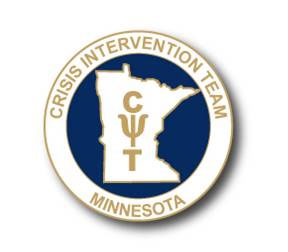De-escalation & Smarter Policing
Presented by: Greg Anderson, On-Target Solutions Group
January 24, 2020, 8 AM – 4 PM.
7 hours (POST Board Approved #10444-0007)
$150/ officer
$125/ if 3 or more from same agency
For more information and to register, click here.
COURSE OVERALL LEARNING GOAL:
This training meets requirements to comply with Minnesota Statute 626.8469 Training in Crisis Response, Conflict Management and Cultural Diversity.
This training has been approved by Minnesota POST to cover 8 hours of the mandatory training. Components covered include Conflict Management and Mediation as well as Recognizing and Valuing Community Diversity and Cultural Differences to Include Implicit Bias training as set by POST. Components not covered are the Crisis Intervention and Mental Illness Crises portion of the mandate which is often covered by mental health professionals that provide training in those areas.
Who should attend: Sworn police officers from the rank of Chief of Police/Sheriff to police officers and deputies. This course is taught by active/retired chiefs of police. This is the training that is sweeping the nation with 1000’s of law enforcement professionals trained in the last years alone!
Nothing is as important to government services as the relationship between law enforcement and the public that is served. Recent inflammatory actions and news stories have had a severe impact and the perception of law enforcement. Agencies and individual employees must understand their role and that every action and statement that is made reflects on the profession as a whole. This training will focus not only on individual employee attitudes and beliefs, but also organizational concepts that either enhances trust or perpetuates a lack of trust with the communities that are served.
Topics Include:
• The concept and foundations of Blue Courage
as they apply to law enforcement authority
• Service, justice, legitimacy and fundamental
fairness as they apply to the Nobility of Policing
• Resilience and apply techniques designed to
enhance ability to function in peak capacity
• Civil and Human Rights
• De-escalation Techniques
• Policing using influence and control
• The concepts of Procedural Justice
• Cultural Competency



